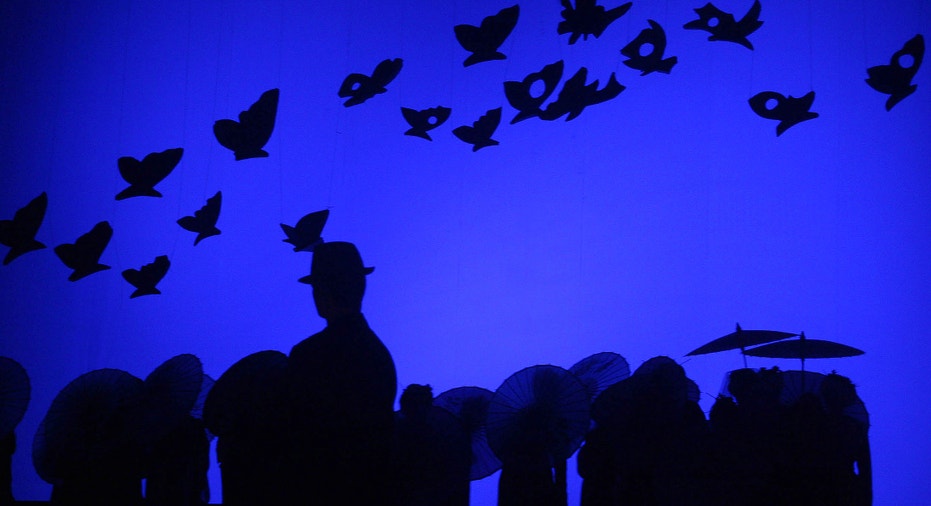How About Opening Yourself to a New Experience?

There is a milestone birthday fast approaching me and it is these kinds of moments that tend to make me stop and take stock of my life. Appreciating experiences I’ve had, but also thinking about ones I might want to have.
This is the mindset I was in when a friend who loves the opera asked if I’d ever been to one. I hadn’t, I said, but I think it’s time. Another friend, who’s never been to the opera, said it wasn’t her thing. But I was thinking about it precisely because I wanted to find out if it was my thing.
Often being a life coach works on me that way. I’d never let it slide if a client told me something she hadn’t tried isn’t for her. Sometimes exploration is in order, no?
My only exposure to opera was my parents’ love of some of the music and my own purchase of a Giacomo Puccini CD while in his birthplace of Lucca on a trip to Italy a few years ago. In fact, on the ride from Lucca back to where I was staying in Pistoia, my vivacious hostess Irene popped the CD into the stereo and blared the operatic sounds as we drove through lush Tuscan scenery. Perhaps that was a beginning of sorts, as I saw how Irene’s love of the music permeated her.
It was time to take it up a notch. I could feel it.
That is how my friend Kathi and I came to be at a performance of Puccini’s Madame Butterfly at The Metropolitan Opera in New York last week. The magnificent entrance was beautifully decorated for the holidays – nice bonus. The December night was crisp and clear – really nice bonus. It was conducted by Placido Domingo – fabulous bonus.
Dressed up for the occasion, it was a wonderful feeling to take our seats and see what awaited us. Kathi had seen Puccini’s La Boheme, so I was the real opera novice. I had heard someone say once – or read somewhere? – that it was best to simply experience the story unfolding, to be with it, and it would be self-explanatory. So for the first act I chose not to make use of the simultaneous translation provided at each seat. But then at intermission I realized how much Kathi had understood that I hadn’t because she had followed along on hers.
“Let me put it this way,” I told her at that point. “If I was about to die and someone said you can only attend one more form of entertainment in your life and the choice was the opera or a football game, I’d choose the football game.”
She looked stricken at my revelation, but by the second intermission I had already changed my tune because I’d used the translator. It was like turning the lens on a camera and bringing a picture sharply into focus. Duh. Lesson learned. Avail oneself of the help provided. It’s there for a reason.
Instead of a pretty, but blurry image, what unfolded before me on that stage was piercing, undying faith in another human being, such a beautiful setting for such profound sadness. The giving over of one’s heart only to find the feeling is not mutual. It awakened much in me.
How amazing it is when we open ourselves fully to an experience. I went from having a hard time engaging to drawn in, so drawn in, in fact, that at one point I had to stop myself from crying out “coward” or worse when Lt. Pinkerton slithered away leaving his new wife to deal with his first one, the young, anguished Cio-Cio-San.
I left with a resolve to learn more about Puccini and this bracing story. That research yielded so much I found inspiring and worthy of sharing.
Unlike, say, painter Vincent Van Gogh, Puccini was acclaimed in his lifetime. In fact, when he died in 1924, news of his death reached Rome where there was a performance of La Boheme in progress. According to Wikipedia, “The opera was immediately stopped, and the orchestra played Chopin’s Funeral March for the stunned audience.”
Probably most striking for me, though, especially with regard to motivation material for my afraid-to-fail clients, was the story of how Madame Butterfly evolved. In the program notes, it tells of Puccini approaching American playwright David Belasco and begging for the rights to his play, Madame Butterfly, in 1900.
“I agreed at once,” Belasco wrote, according to the program. “[Though] it is not possible to discuss business arrangements with an impulsive Italian who has tears in his eyes and both arms around your neck.”
Ah, such passion. Only to be turned into such vision.
Puccini’s Madame Butterfly had its world premiere at La Scala in Milan in 1904 and it was received with mockery. It was taken off the schedule after one performance and Puccini covered La Scala’s costs. But he and his collaborators revised the opera and three months later it was well-received in Brescia, then Buenos Aires, then Covent Garden before they crafted the 1906 Paris version that has largely endured.
A massive failure by most accounts turned into a massive triumph, the kind that continues to impact culture around the world. An interesting fact to keep in mind when any of us are thrown by a bad review, cutting criticism or even self-imposed perfectionism.
This is what I thought about the next day, soaking in a hot lavender-scented bath, the sounds of that Puccini CD floating from my stereo.
Stay open. Love deeply. Keep trying.
Opera. Check.
Nancy Colasurdo is a practicing life coach and freelance writer. Her Web site is www.nancola.com and you can follow her on Twitter @nancola. Please direct all questions/comments to FOXGamePlan@gmail.com.



















